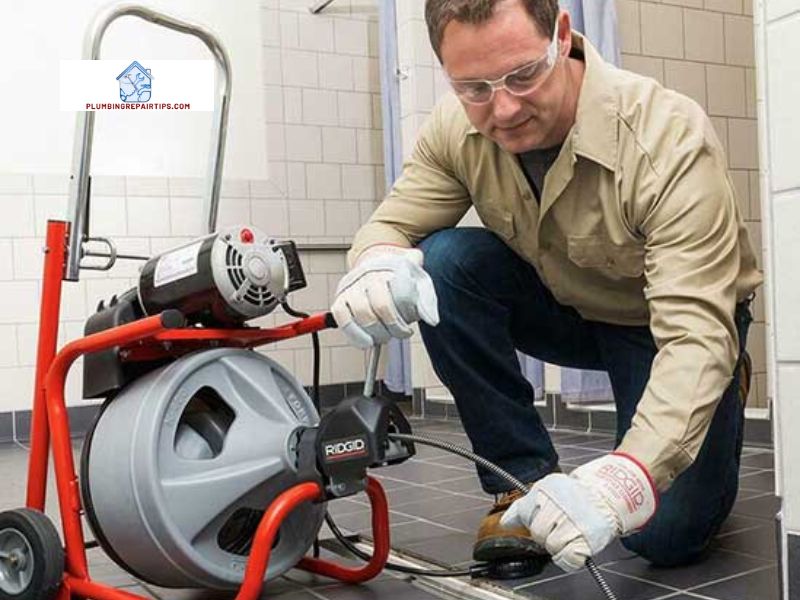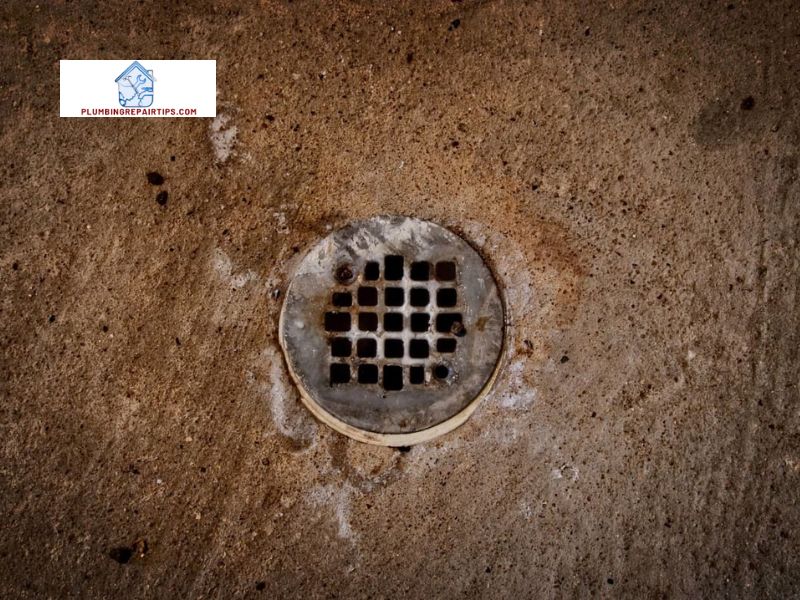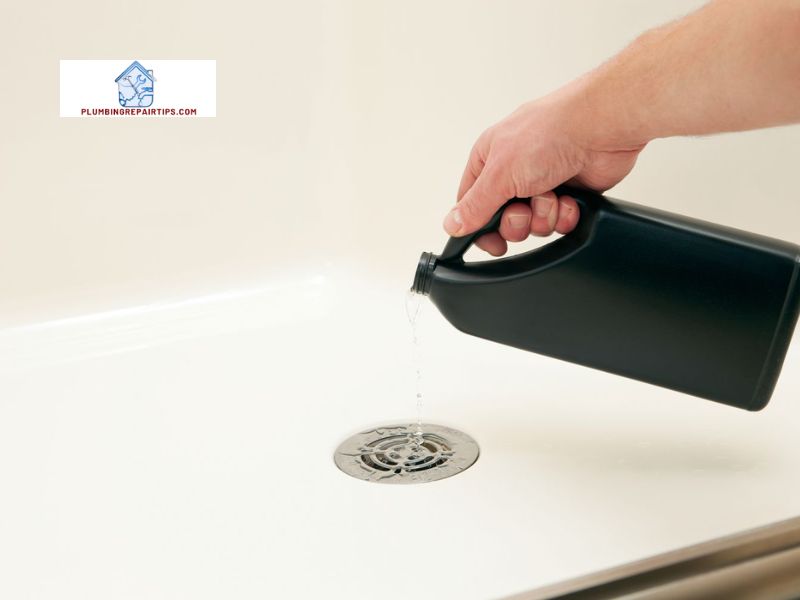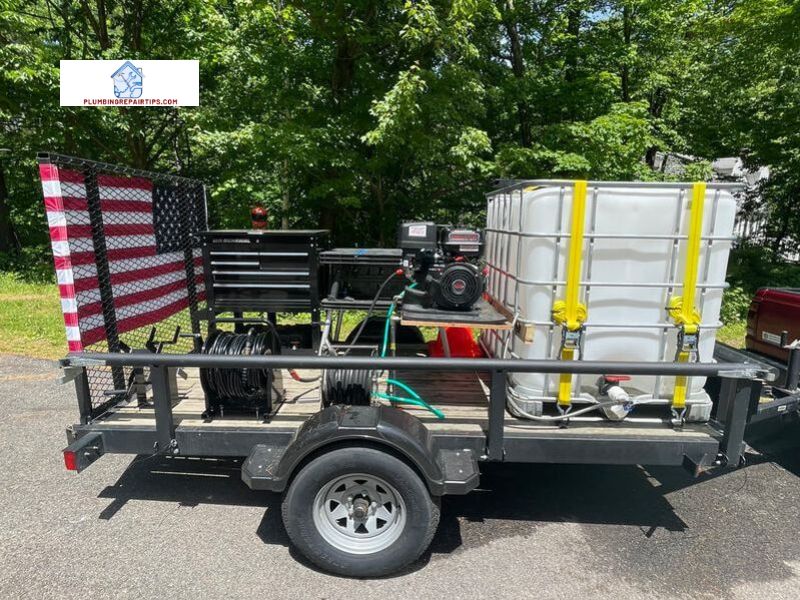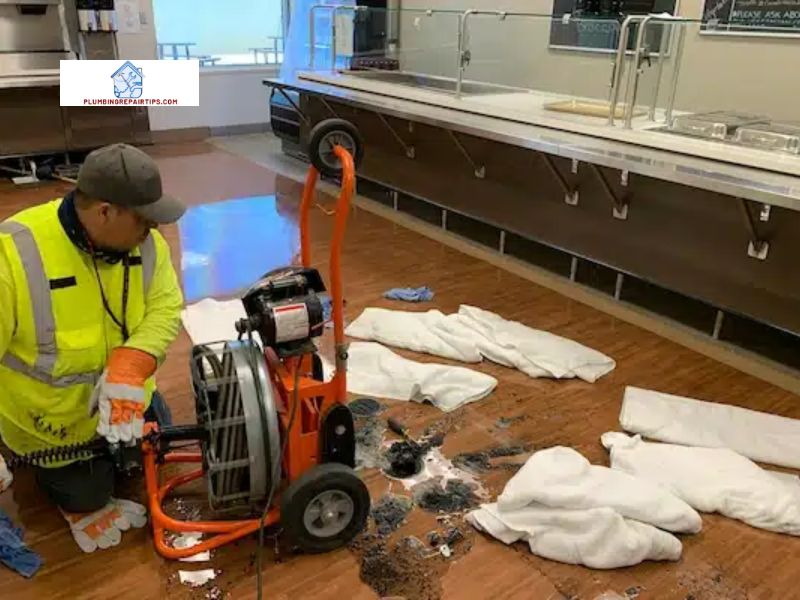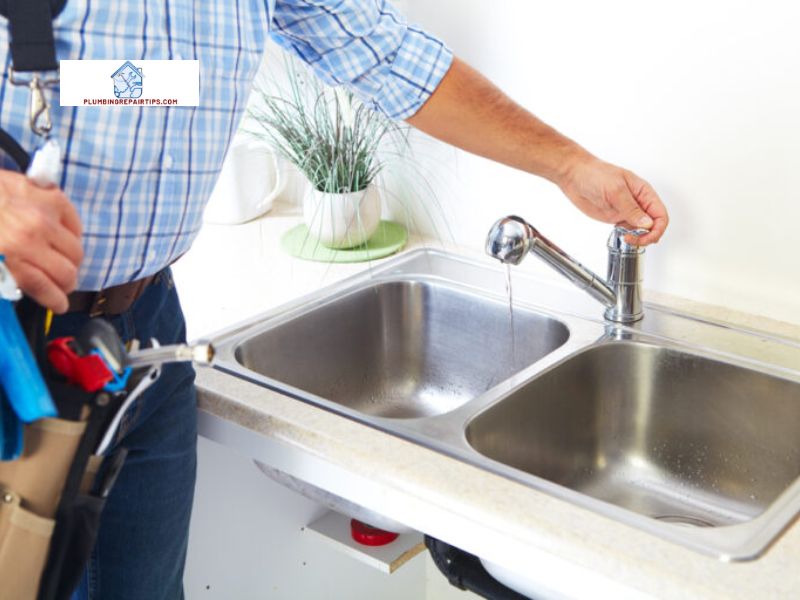Introduction
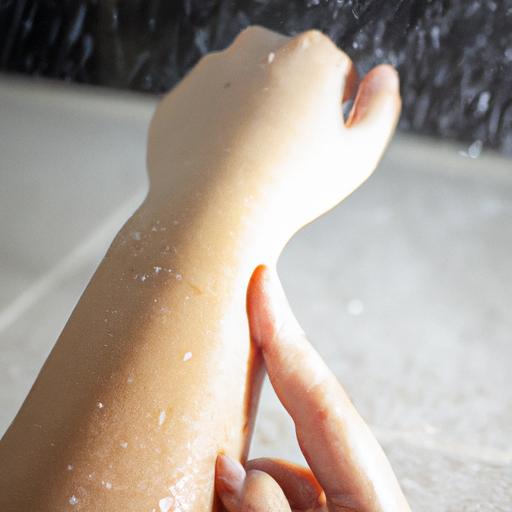
When was the last time you truly enjoyed a refreshing shower? If you’ve been experiencing dry, itchy skin or lackluster hair, your shower may be the culprit. Introducing the villain: hard water. But fear not, because in this article, plumbingrepairtips.com will dive deep into the world of hard water showers and explore effective solutions to reclaim the joy of showering.
Definition and Explanation of Hard Water
Let’s start by understanding what hard water actually is. Hard water refers to water that contains high mineral content, primarily calcium and magnesium ions. These minerals are picked up as water percolates through limestone and chalk deposits, giving it that “hardness” we dread.
Importance of Addressing Hard Water Issues in Showers
“Why should I bother about hard water?” you might ask. Well, the consequences of ignoring this problem can be more far-reaching than you think. The minerals in hard water can wreak havoc on your skin and hair, leaving them dry, dull, and prone to irritation. Additionally, the buildup of mineral deposits can lead to clogged showerheads, reduced water flow, and even damage to your plumbing fixtures.
Brief Overview of the Article’s Content
In this comprehensive guide, we will explore the impact of hard water on your shower experience and provide you with practical solutions to combat it. We’ll discuss the telltale signs of hard water in showers and delve into the various issues it can cause. From there, we will introduce you to different methods of tackling hard water, including water softeners, DIY remedies, and specialized showerhead filters. We’ll also provide tips for preventing and maintaining shower fixtures to ensure a long-lasting solution.
So, get ready to bid farewell to lackluster showers and say hello to a revitalizing experience. Let’s jump in and unravel the mysteries of hard water showers together!
- words*
Understanding Hard Water
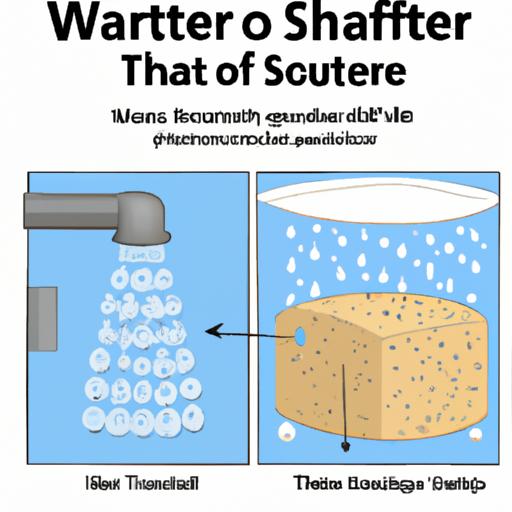
Definition and Causes of Hard Water
To truly tackle the issue of hard water showers, we must first grasp what causes it. As mentioned earlier, hard water contains an excessive amount of minerals like calcium and magnesium. These minerals dissolve in groundwater as it percolates through mineral-rich rocks and soil, making it hard.
The primary culprits behind hard water are calcium carbonate and magnesium carbonate. When water comes into contact with limestone or chalk deposits, it absorbs these minerals, resulting in hard water. The higher the concentration of these minerals, the harder the water becomes.
Common Signs of Hard Water in Showers
How can you tell if your shower is plagued by hard water? Look out for some telltale signs. One of the most common indicators is the buildup of white or yellowish mineral deposits on shower fixtures, such as faucets and showerheads. These unsightly deposits, known as limescale or scaling, can be stubborn to remove.
Another sign is the difficulty in lathering soap or shampoo. Hard water hinders the ability of soaps and shampoos to create a rich lather, leaving you feeling like you’re using more product than necessary. Additionally, you may notice that your skin and hair feel dry and dull after showering with hard water.
Negative Effects of Hard Water on Skin and Hair
The impact of hard water on your skin and hair can be quite distressing. The minerals in hard water strip away the natural oils from your skin, leading to dryness and irritation. This can exacerbate skin conditions like eczema and psoriasis, causing discomfort.
Similarly, hard water can leave your hair feeling lackluster and brittle. The minerals create a barrier on the hair shaft, making it difficult for moisture to penetrate, resulting in dry and frizzy hair. Over time, this can lead to hair breakage and a general loss of shine.
Understanding the causes and effects of hard water is crucial in finding effective solutions. In the next sections, we will explore various methods to combat hard water showers and restore the health and vitality of your skin and hair.
- words*
Impact of Hard Water on Showers
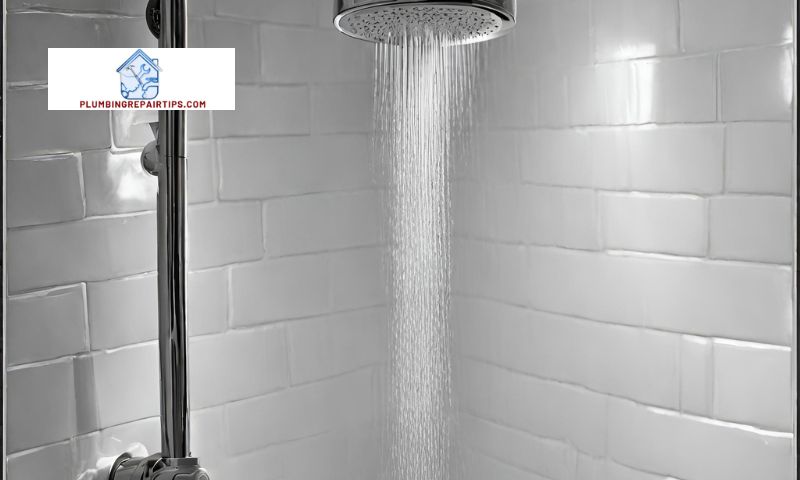
Mineral Deposits and Scaling in Shower Fixtures
Have you ever noticed a crusty white residue forming around your showerhead or on the walls of your shower? These unsightly deposits are a telltale sign of hard water. The minerals present in hard water, such as calcium and magnesium, can accumulate over time, leading to scaling and buildup. Not only does this affect the appearance of your shower fixtures, but it can also hinder their functionality. Scaling can clog the tiny openings in your showerhead, affecting water flow and even causing it to spray in unpredictable directions.
Clogged Showerheads and Reduced Water Flow
Do you find yourself standing under a feeble trickle of water during your shower? Hard water can be the culprit behind this frustrating experience. As the mineral deposits accumulate within the showerhead, they can cause blockages, resulting in reduced water flow. This not only affects the pressure of your shower but can also prolong the time spent rinsing off soap and shampoo, making your shower routine more time-consuming.
Soap Scum and Difficulty in Lathering
Does it feel like your soap or shampoo just doesn’t lather up as well as it should? Hard water can interfere with the lathering process, making it difficult to achieve a rich and satisfying foam. The minerals in hard water react with the soap, forming a sticky film known as soap scum. This residue not only makes it harder to create a lather but can also leave a dull film on your skin and hair, making them feel less clean and vibrant.
Don’t let hard water continue to hinder your shower experience. In the next section, we’ll explore effective solutions to combat these issues and restore the joy of showering.
- words*
Solutions for Dealing with Hard Water in Showers
Water Softeners and Water Conditioning Systems
Are you tired of battling with pesky hard water in your showers? Look no further than water softeners and water conditioning systems to come to your rescue. These solutions work wonders in transforming the quality of your shower water and restoring your skin and hair to their former glory.
Explanation of How Water Softeners Work
Water softeners are devices that use a process called ion exchange to remove the minerals responsible for water hardness. As hard water enters the softener, it passes through a tank filled with resin beads. These beads are negatively charged and attract the positively charged calcium and magnesium ions present in hard water. The resin beads then release sodium ions, effectively swapping the minerals and softening the water.
Benefits of Using Water Softeners in Showers
The benefits of using water softeners in your showers are truly remarkable. Firstly, they eliminate the mineral buildup that causes unsightly scaling on your shower fixtures. Say goodbye to scrubbing those stubborn deposits! Secondly, softened water enhances soap lathering, allowing you to use less soap or shampoo and saving you money in the long run. Lastly, your skin and hair will thank you. Softened water is gentle on the skin, preventing dryness and irritation, while leaving your hair feeling soft and silky.
Alternative Solutions for Treating Hard Water
If installing a water softener is not a viable option for you, don’t worry. There are alternative solutions that can still make a significant difference in tackling hard water in your showers.
DIY Remedies Using Household Items
You might be surprised to learn that some items in your pantry can come to the rescue when it comes to combating hard water. For example, adding a cup of vinegar to your bathwater or using a vinegar rinse after shampooing can help remove mineral buildup. Similarly, citric acid, lemon juice, or baking soda can be used as natural alternatives to soften water and improve its quality.
Showerhead Filters and Their Effectiveness
Another alternative worth considering is the use of showerhead filters. These filters are designed to remove impurities and mineral deposits from the water, providing you with a cleaner and softer shower experience. They work by employing various filtration mechanisms such as activated carbon or KDF media, which effectively trap and neutralize contaminants. While not as comprehensive as water softeners, showerhead filters can still significantly reduce the negative effects of hard water on your skin and hair.
- words*
Conclusion
In conclusion, tackling the challenges of hard water in your shower is not only essential for your comfort but also for the longevity of your plumbing fixtures. By understanding the impact of hard water and implementing effective solutions, you can transform your showering experience into a refreshing and rejuvenating ritual.
Throughout this article, we have explored the definition and explanation of hard water, highlighting its negative effects on your skin, hair, and plumbing fixtures. We have emphasized the importance of addressing hard water issues to avoid dryness, irritation, and reduced water flow in your showers.
To combat hard water, we have introduced various solutions. Water softeners and water conditioning systems have proven to be effective in reducing mineral buildup and improving the quality of your shower water. DIY remedies using natural solutions like vinegar can also help remove mineral deposits and enhance your shower experience. Additionally, specialized showerhead filters offer an easy and convenient way to filter out the minerals and provide a cleaner shower.
To maintain your shower fixtures, regular cleaning and maintenance are crucial. Simple tips like wiping down surfaces, using mild cleaners, and removing mineral deposits with vinegar can go a long way in preventing clogs and maintaining optimal water flow. Proper care of your showerhead, such as removing and soaking it in vinegar periodically, can further prevent mineral buildup and ensure a consistent water pressure.
At plumbingrepairtips.com, we understand the importance of a high-quality shower experience, free from the troubles of hard water. By incorporating the solutions and tips discussed in this article, you can bid farewell to the woes of hard water showers and embrace a revitalizing and enjoyable showering routine.
Remember, it’s time to take action and reclaim the joy of your showers. Say goodbye to hard water and hello to a refreshing oasis right in your own bathroom!
- words*
